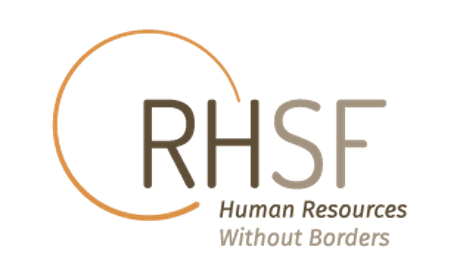Experimenting with pilot solutions that combine innovation and pragmatism to act at the root of indecent work: this is where RHSF’s expertise lies.
There is currently no turnkey solution to the risks of abusive child labour and forced labour in supply chains. RHSF is therefore experimenting with solutions to prevent the risks with its partner companies while developing awareness and training solutions to share and pass on its expertise widely.
Experiment with solutions
To prevent forced labour and abusive child labour and thus contribute to UN Sustainable Development Goal (SDG) 8.7, RHSF has launched Lab 8.7, its operational solutions incubator.
With the support of committed companies and the French Ministry of Europe and Foreign Affairs, Lab 8.7 brings together pioneering players to invent and share new solutions.
We have shown that it is possible!
RHSF had an experience of total immersion in a Chinese textile factory for 2 years.
Awarded two international prizes, our experiment has proved that a sustainable improvement in working conditions is possible without reducing productivity and product quality.
Five years later, the system set up in this factory has enabled it to better cope with the coronavirus crisis.
This experimentation has led to the design of a first model of responsible human resources management, which will be reinforced and supplemented by our ongoing pilot projects.
Our experimentations
Drawing on the experience of the RHSF experts, who have been analysing the risks of abusive child labour and forced labour in the field for more than 15 years, Lab 8.7 has defined 3 main guidelines for experiments in the supply chains of our partner companies up to 2025:
- Protection of workers throughout the recruitment process, through fair recruitment channels,
- Future education and skills in agriculture,
- Responsible management of the workforce.
The experiments will make it possible to validate, with the support of academic experts and international organisations, operational solutions that will be shared with all the players concerned.
- Costa Rica
- China
- France
- Malaysia
- Taiwan Province
Findings
- Forced labour and abusive child labour remain prevalent in supply chains around the world. In fact, both are increasing according to the latest ILO’s estimates.
- The problem is systemic. Low-skilled workers – whether they are legal or illegal – and their families, in the case of family migrations, are highly exposed to the risks of abusive work.
At the origin of these situations: contracts not matching reality, recruitment costs and various other costs leading to situations of debt bondage, constraints on workers, unprotected migration…
Challenges
- Change the economic model of recruitment, which currently only relies on the fees paid by the worker (for a worker migrating to Malaysia and taking into account all fees, RHSF observed that workers pay 4-month salary).
- Reintegrate the real cost of labour recruitment throughout the chain, taking into account the legitimate interests of all stakeholders and ensuring that each of the actors can make a decent living from their work as defined by the ILO.
Existing initiatives do not meet these challenges. Some initiatives did succeed in making the employer accept to bear the costs of recruitment. However, abusive working conditions persist because the deployment of these new commitments are not monitored and none of the initiatives question the overall system in place. In practice, the worker continues to pay fees, often under other names.
Our answer
Overall objective: to prevent forced labour and abusive child labour in the legal subcontracting chain through the implementation of a fair recruitment chain model that is profitable and sustainable for all stakeholders along the value chain.
Specific objectives:
In the entire recruitment chain:
- Establish a system that respects international law and local law if it is more favourable and is transparent to all.
- Ensure that this system operates at a more economically rational cost (and not 30 months’ salary) borne by the actors recruiting the workforce.
- Ensure the sustainability of the new virtuous system put in place: to ensure, effectively and sustainably, that practices for recruiting and managing workers are free of violations of fundamental rights.
Findings
- Increasing difficulties in attracting and retaining young people in agriculture. In France, as in Costa Rica’s coffee cultivation, agriculture is faced with a shortage of labour. Faced with this situation, farmers usually have to recruit foreign seasonal workers and young people, who are particularly exposed to the risks of abusive work . These recruitment difficulties also entail other risks: impact on the dynamism of the sector, loss of unique traditional know-how.
- Agriculture: a sector highly exposed to the risk of abusive child labour. Worldwide, agriculture is the sector most affected by child labour, which takes many forms. In France, although the situation is quite different from what can be observed in countries more exposed to the most serious forms, young seasonal workers or apprentices may be exposed to dangerous work, placing them in abusive labour situations.
These indecent work situations further alienate young people from the agricultural sector. We are faced with a vicious circle: loss of attractiveness and the risk of abusive work reinforce each other.
Challenges
- To develop or strengthen, in addition to existing structures, an educational and professional system that attracts and retains young people and women who are far from employment, in France as well as in Costa Rica.
- In Costa Rica, providing children with opportunities in agriculture and helping to break the cycle of poverty among the most disadvantaged children and families, especially migrant ones – in parallel with the actions carried out on remuneration and recruitment channels (see other experiments).
Our answer
In Costa Rica and France, in a process of co-construction with local actors:
Overall objective: to develop locally, particularly for young people and women, future-oriented, accessible and attractive employment opportunities.
Specific objectives :
- Analyse the agricultural know-how of the sectors and identify the skills and professions of the future,
- To enable children to discover these skills and trades of the future, as well as ways to become self-sufficient,
- Enabling young people and women to develop skills for the future.
To be able to activate all the levers, the “Education and skills for the future” experiments are conducted in association with the “Responsible human resources management” and “Fair recruitment channels” experiments.
- Costa Rica
- Malaysia
- France
- China
Findings
All too often, in subcontracting chains, employers do not sufficiently perceive the risks of indecent work to which workers are exposed.
Accordingly,
- Workers are subjected to serious harm, including damage to their health, or even forced labour, for example by paying intermediaries to get their jobs;
- Employers’ practices encourage families to make their children work in order to earn the minimum subsistence wage (e.g. weight-based pay in agriculture, non-compliance with social security contributions, etc.).
Challenges
In the 15 years of its involvement in the field, RHSF has identified 4 main risk factors at the root of all situations of forced labour and abusive child labour. Located at the heart of human resources management, they concern :
- the recruitment chain,
- the remuneration system,
- social dialogue,
- health and safety at work.
These elements are so closely intertwined that attempts to solve the problem by dealing with them in isolation have failed. A holistic and cross-cutting approach is therefore needed.
With this in mind, Lab 8.7 is experimenting with a global method of responsible human resources management, based on its experimentation with fair recruitment channels (see other experiments).
Our answer
Overall goal: to protect vulnerable workers from indecent work, including abusive child labour and forced labour, in a sustainable manner.
Specific objectives :
- Raising awareness: Employers understand their impacts on the risks of indecent work, and the economic, social and environmental consequences that result;
- Building the fundamentals: Employers test and validate a labour management approach that protects workers and families. The method applies to all key processes that impact on risk prevention: recruitment, remuneration, health and safety, social dialogue that includes a credible complaint system accessible to all workers.
Spread our expertise
RHSF shares its knowledge of the field and its expertise with all stakeholders (companies, trade unions, citizens, public players, etc.).
Because everyone has a role to play in ensuring that the fundamental rights of the workers behind our goods and services are respected. It is therefore necessary to raise awareness, train and disseminate solutions from the field.
We have shown that it is possible !
Did you know that tens of millions of people all over the world are subjected to working conditions that amount to a modern form of slavery? We can all play a role in preventing forced labour at our own level.
In this spirit, more than 200 cartoonists from 65 countries responded to the challenge launched in March and April 2021 by the International Labor Organization (ILO) and Human Resources Without Borders (RHSF): what if your pencil was a tool against forced labour?
Our actions for:
To ensure better detection and prevention of the risks of human rights abuses, RHSF trains auditors, companies (buyers, CSR professionals, HR…), public and political actors and consumer associations.
The keys to our approach:
A field orientation and the implementation of knowledge through practical cases,
Training for professionals tested with companies, associations, representatives of institutions.
EXHIBITION Perspectives on Forced Labour:
Drawings are powerful tools. Without using words, they make complex messages understandable and encourage everyone to reflect on sensitive issues.
A selection of the 460 cartoons, received from 65 countries as part of the international cartoons competition is presented in a travelling exhibition, that was opened at the UN Palais des Nations in Geneva on 8 June 2022.
The exhibition of drawings can be loaned for your awareness raising activities. For more information, contact us: contact@hrwithoutborders.org
RHSF has taken the strategic decision to work with consumer information organisations to raise public awareness of the complex realities of child labour and forced labour and its levers for action.
In 2020, RHSF initiated a collaboration with 60 Millions de consommateurs, the magazine published by the Institut national de la consommation (INC) and launched the first capacity building actions. Since then, the collaboration between the INC and RHSF has been strengthened. RHSF is making proposals for consumer information through a working group. Possible actions will be validated during 2022 in order to establish a specific action plan.










